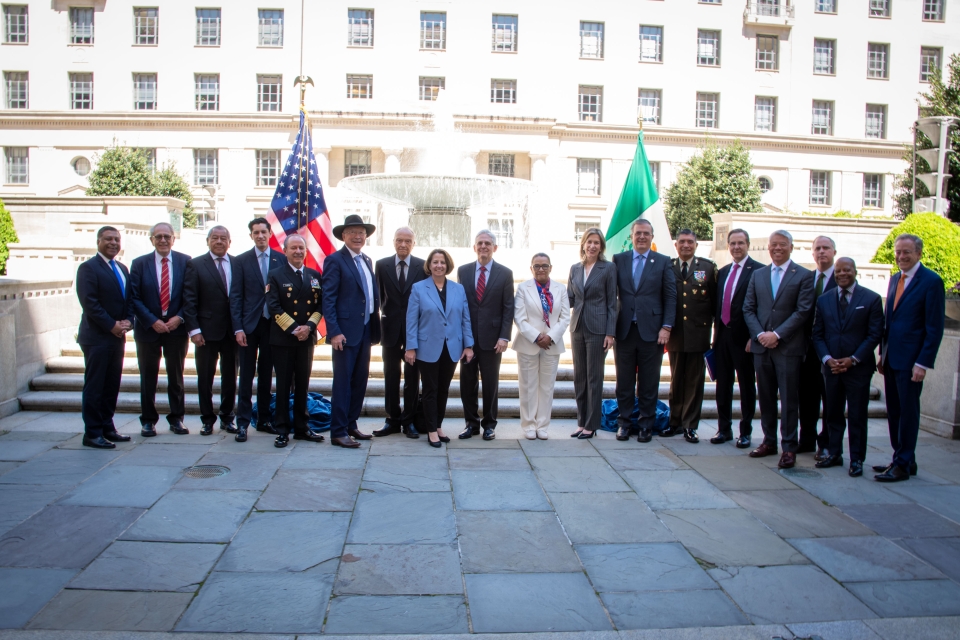04/22/21 (written by tmcginnis) – According to Reforma, in a nearly unanimous vote, the Mexican Senate approved a new Organic Law (Ley Orgánica) for the National Prosecutor’s Office (Fiscalía General de la República, FGR) on March 17. Now under discussion in the Chamber of Deputies (Cámara de Diputados), experts from primer think tanks, like México Evalúa, argue that there are presently no evidence-based arguments regarding the issuance of the new law, especially because the National Prosecutor, Alejandro Gertz Manero, has not complied with the current regulatory framework.

While the current law broadly sought to create an autonomous prosecutor’s office and guarantee the guarding of essential human rights, the new regulations favor the investigation of individual crimes and not broader criminal trends, the limitation of victims’ rights, as well as the centralization of investigative control in the hands of the Prosecutor. Essentially, the new Organic Law perpetuates the organizational model of the former Attorney General’s Office (Procuraduría General de la República, PGR), an agency that was characterized by inefficiency and ineffectiveness. During a México Evalúa online forum entitled “¿Necesita la FGR una nueva Ley Orgánica?” (author’s translation: “Does the FGR need a new Organic Law?”), the panelists discussed the fact that the principal aspects of the current regulatory framework, such as an a Citizen Advisory Council, transition units, career training, and professional service centers were never installed. Furthermore, the Criminal Prosecution Plan (Plan de Persecución Penal), which outlines the types of cases the FGR will prioritize during investigations, prosecutions, litigation stages, etc., and recognizes the FGR’s various temporal goals, was never presented. As noted by a México Evalúa analysis, the current situation reflects a dangerous exercise of Gatopardismo — a strategy that purports to introduce radical reform, while in practice making only superficial changes. In essence, it is a paradox that encompasses the idea of changing everything so that, in effect, nothing changes.
Whether or not Gertz’s performance has hampered the development of an effective and autonomous FGR, it remains critically important to evaluate what can be learned from the current situation and what requires adjustment. According to México Evalúa, while the 2014 constitutional reforms to create a new FGR provided an important opportunity to reinvent federal criminal investigations and prosecutions, good intentions and model legislation were evidently not sufficient to achieve better outcomes. An analysis from México Evalúa pointed out that true bureaucratic transformation of an agency like the PGR requires a strong commitment to redesigning institutions, as well as a clear implementation strategy to define short, medium, and long-term courses of action and resource allocation. This, in turn, requires strong political will and specific measures to ensure that the implementation plan cannot be easily disrupted.
Furthermore, while most attention on prosecutorial reform has focused on the federal level, the transition processes of the 32 state prosecutors’ offices have been often ignored. According to analysts at México Evalúa, this is a critical error because these entities are presently responsible for handling the vast majority of crimes of that occur throughout the country. Thus, in order to truly understand the scope and results of any regulatory framework of the aforementioned nature, states require punctual follow-ups.

Forecasting possible next steps in this process, given that sitting President Andres Manuel López Obrador and his (Movimiento de Renovación Nacional, MORENA) party have a strong legislative majority, it seems likely that the Chamber of Deputies will pass the law without substantive changes. However, according to El Economista, bodies like the Office of the United Nations High Commissioner for Human Rights (La Oficina del Alto Comisionado de las Naciones Unidas para los Derechos Humanos, ONU-DH) have encouraged the Chamber of Deputies to carry out a process of discussion in open parliament. Over Twitter, the international organization highlighted that the reforms of the FGR remain of great importance to many diverse sectors of Mexican society, and that the victims of crime should be heard before proceeding with any decision.
Sources
El Universal. “FGR no necesita una nueva ley; no ha cumplido con la que ahora tiene, critican.” El Universal. March 23, 2021.
Herrera, Rolando. “Ven regresiva nueva Ley Orgánica de la FGR.” Reforma. March 23, 2021.
López, Mayolo. “Aprueba Senado nueva Ley Orgánica de FGR.” Reforma. March 17, 2021.
México Evalúa. “¿Necesita la FGR una Ley Orgánica?” YouTube. March 23, 2021.
Pérez, Maritza. “Llaman a abrir debate por ley de la FGR.” El Economista. April 5, 2021.
Rosales, Crístel. “La nueva FGR se apunta al gatopardismo radical.” México Evalúa. March 18, 2021.




